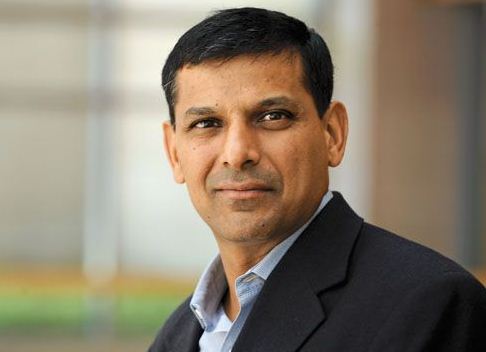
By Dr. Raghuram Rajan, Governor, Reserve Bank of India
I am sure many of you have come across Richard Feynman’s Lectures on Physics, a must-read when we were at IIT. The Nobel prize-winning physicist was one of the giants of the twentieth century. In his autobiography, though, he writes how he found the atmosphere at the Institute of Advanced Studies at Princeton stultifying. Now, as you know, the Institute of Advanced Studies brings together some of the finest scholars in the world to ponder problems in a multi-disciplinary environment. But he found the atmosphere sterile because there were no students to ask him questions, questions that would force him to rethink his beliefs and perhaps discover new theories. Ideas start with questioning and alternative viewpoints, sometimes seemingly silly ones. After all, Einstein built his theory of relativity pondering the somewhat wacky question of what someone travelling in a train at the speed of light would experience. So nothing should be excluded but everything should be subject to debate and constant testing. No one should be allowed to offer unquestioned pronouncements. Without this competition for ideas, we have stagnation.
This then leads to a second essential: Protection, not of specific ideas and traditions, but the right to question and challenge, the right to behave differently so long as it does not hurt others seriously. In this protection lies societal self-interest, for it is by encouraging the challenge of innovative rebels that society develops, that it gets the ideas that propel Solow’s total factor productivity growth. Fortunately, India has always protected debate and the right to have different views. Some have even embedded these views in permanent structures. Raja Raja Chola, in building the magnificent Brihadeeswara Shaivite temple at Thanjavur, also incorporated sculptures of Vishnu as well as the meditating Buddha thus admitting to alternative viewpoints. When Shahenshah Jalaluddin Muhammad Akbar invited scholars of all manner of persuasion to debate the eternal verities at his court, he was only following older traditions of our Hindu and Buddhist kings, who encouraged and protected the spirit of enquiry.
What then of group sentiment? Should ideas or behaviour that hurt a particular intellectual position or group not be banned? Possibly, but a quick resort to bans will chill all debate as everyone will be anguished by ideas they dislike. It is far better to improve the environment for ideas through tolerance and mutual respect.
Let me explain. Actions that physically harm anyone, or show verbal contempt for a particular group so that they damage the group’s participation in the marketplace for ideas, should certainly not be allowed. For example, sexual harassment, whether physical or verbal, has no place in society. At the same time, groups should not be looking for slights any and everywhere, so that too much is seen as offensive; the theory of confirmation bias in psychology suggests that once one starts looking for insults, one can find them everywhere, even in the most innocuous statements. Indeed, if what you do offends me but does not harm me otherwise, there should be a very high bar for prohibiting your act. After all, any ban, and certainly any vigilante acts to enforce it, may offend you as much, or more, than the offense to me. Excessive political correctness stifles progress as much as excessive license and disrespect.
Put differently, while you should avoid pressing the buttons that upset me to the extent possible, when you do push them you should explain carefully why that is necessary so as to move the debate forward, and how it should not be interpreted as a personal attack on me. You have to tread respectfully, assuring me that a challenge to the ideas I hold is necessary for progress. At the same time, I should endeavour to hold few ideas so closely intertwined with my personality that any attack on them is deemed an intolerable personal affront. Tolerance means not being so insecure about one’s ideas that one cannot subject them to challenge it implies a degree of detachment that is absolutely necessary for mature debate. Finally, respect requires that in the rare case when an idea is tightly associated with a group?s core personality, we are extra careful about challenging it.
Tolerance can take the offense out of debate, and indeed instil respect. If I go berserk every time a particular button is pressed, rebels are tempted to press the button, while mischief-makers indeed do so. But if I do not react predictably, and instead ask button pressers to explain their concerns, rebels are forced to do the hard work of marshalling arguments. So, rebels do not press the button frivolously, while the thuggish mischief makers who abound in every group are left without an easy trigger. Tolerance and respect then lead to a good equilibrium where they reinforce each other.
For example, rebellious youth in the United States used to burn the American flag. It was calculated to upset the older generation that had fought in America?s wars, for the flag was a symbol of all they had fought for. And the police, many of whom were veterans, used to react with violence, which was precisely the reaction the rebels sought to further their cause. Over time, though, U.S. society has become more tolerant of flag-burning. Because it no longer triggers a reaction, it is no longer used as an instrument to shock. In sum, if group sentiment becomes more tolerant and less easily hurt, the actions that try to hurt it will diminish. As Mahatma Gandhi said, The golden rule of conduct is mutual toleration, seeing that we will never all think alike and we shall always see Truth in fragments and from different points of vision.
(Courtesy: RBI)







